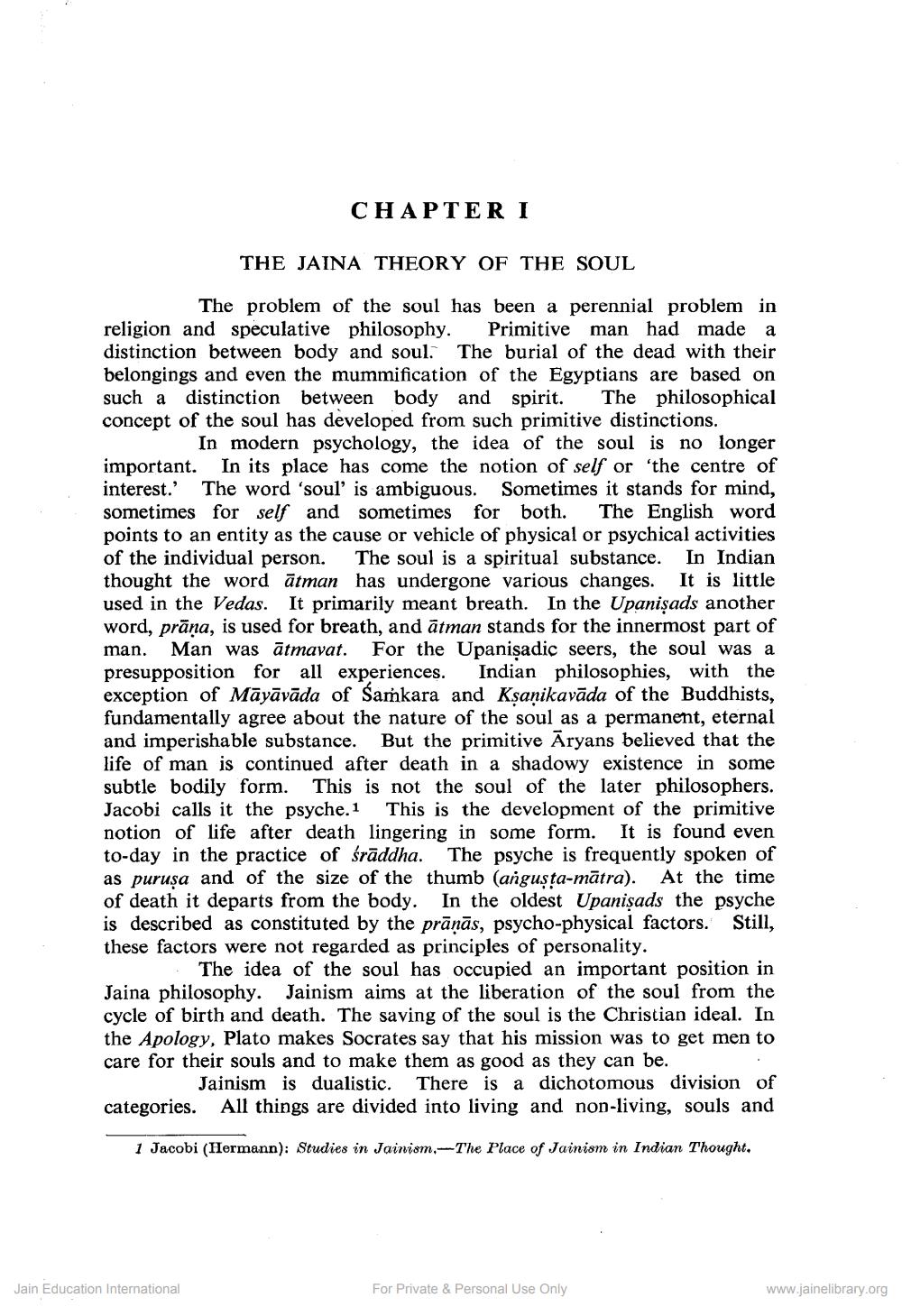________________
CHAPTERI
THE JAINA THEORY OF THE SOUL
The problem of the soul has been a perennial problem in religion and speculative philosophy. Primitive man had made a distinction between body and soul. The burial of the dead with their belongings and even the mummification of the Egyptians are based on such a distinction between body and spirit. The philosophical concept of the soul has developed from such primitive distinctions.
In modern psychology, the idea of the soul is no longer important. In its place has come the notion of self or 'the centre of interest.' The word 'soul is ambiguous. Sometimes it stands for mind, sometimes for self and sometimes for both. The English word points to an entity as the cause or vehicle of physical or psychical activities of the individual person. The soul is a spiritual substance. In Indian thought the word ātman has undergone various changes. It is little used in the Vedas. It primarily meant breath. In the Upanişads another word, prāna, is used for breath, and ātman stands for the innermost part of man. Man was ātmavat. For the Upanişadic seers, the soul was a presupposition for all experiences. Indian philosophies, with the exception of Māyāvāda of Saṁkara and Ksanikavāda of the Buddhists, fundamentally agree about the nature of the soul as a permanent, eternal and imperishable substance. But the primitive Aryans believed that the life of man is continued after death in a shadowy existence in some subtle bodily form. This is not the soul of the later philosophers. Jacobi calls it the psyche. 1 This is the development of the primitive notion of life after death lingering in some form. It is found even to-day in the practice of śrāddha. The psyche is frequently spoken of as puruşa and of the size of the thumb (angușta-mātra). At the time of death it departs from the body. In the oldest Upanisads the psyche is described as constituted by the prāņās, psycho-physical factors. Still, these factors were not regarded as principles of personality.
The idea of the soul has occupied an important position in Jaina philosophy. Jainism aims at the liberation of the soul from the cycle of birth and death. The saving of the soul is the Christian ideal. In the Apology, Plato makes Socrates say that his mission was to get men to care for their souls and to make them as good as they can be.
Jainism is dualistic. There is a dichotomous division of categories. All things are divided into living and non-living, souls and
1 Jacobi (Hermann): Studies in Jainism.-The Place of Jainism in Indian Thought.
Jain Education International
For Private & Personal Use Only
www.jainelibrary.org




